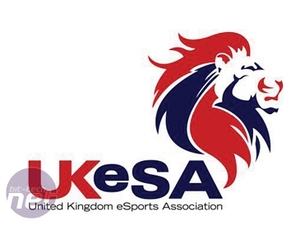Does Professional Gaming Have a Future?
April 10, 2009 | 09:29
Companies: #bit-tech #esports #world-cyber-games

UK and European organisations
Closer to home, there are another three leagues to consider: the Electronic Sports League, the SGL and the newly formed United Kingdom eSports Association.The ESL is a European online gaming organisation that runs professional and amateur leagues, plus an open ladder system. On top of this, the ESL also runs a Nations Championship for national teams and the Intel Extreme Masters, a tournament of Counter-Strike and World of Warcraft competitions. The tournament brings together contenders from Europe, America and Asia to compete for a $750,000 cash prize.
The SGL runs a range of online leagues, ladders and tournaments for games including Counter-Strike 1.6, Counter-Strike: Source, Trackmania Nations, Team Fortress 2 and Call of Duty 4 on the PC. Cash prizes are awarded, and the organisation has more than 44,000 registered members in over 9,000 teams.
UKeSA, meanwhile, has just been launched by a collection of major names from the UK eSports scene, plus key players from
 Xleague.TV and the mainstream media. It aims to be the FA equivalent of British competitive online gaming, running an open division for enthusiastic amateurs, a semi-professional ‘championship’ division and a true, professional-level ‘premiership’ division, in which only the best teams in each title will be invited – and paid – to play. Teams will be relegated from the premiership and promoted from the championship – much like football teams – with the idea being to encourage giant killing and create a space in which new talent can appear and shine.
Xleague.TV and the mainstream media. It aims to be the FA equivalent of British competitive online gaming, running an open division for enthusiastic amateurs, a semi-professional ‘championship’ division and a true, professional-level ‘premiership’ division, in which only the best teams in each title will be invited – and paid – to play. Teams will be relegated from the premiership and promoted from the championship – much like football teams – with the idea being to encourage giant killing and create a space in which new talent can appear and shine.Numerous other leagues and tournaments are also taking place, including game or company tie-in competitions, such as the Quakecon and Blizzard invitational events, not to mention large LAN party events such as the iSeries. Add regional competitions such as the World eSports Games in China or the console-focused Major League Gaming championship in the USA to the mix, and there’s plenty of scope for confusion.
Show me the money
Still, at least eSports holds a sufficient number of competitions to satisfy gamers. But is there enough money? Some of the evidence would suggest that there isn’t. Between 2000 and 2002, the likes of Fatal1ty might have scooped $65,000 or more in winnings. In 2005, he won $150,000 for the CPL World Tour Championship. By contrast, last year’s most successful player, Alexey ‘Cyph3r’ Yushanevsky, is estimated to have won between $20,000 and $30,000.'First you get the frags, then you get the power,then you get the women'
Is professional gaming still a route to riches, or is it on a steady downhill slope? Michael ‘ODEE’ O’Dell of the UK’s Team Dignitas thinks not. ‘The scene is as strong as ever, but we’re in the biggest recession for many years, so prize money has been slashed in some areas,’ he remarks. Paul ‘RedEye’ Chaloner, a prominent eSports commentator concurs. ‘If you look at it purely from a prize money point of view then, sure, there’s less this year than last year, but there’s still more money in competitive gaming in 2009 than there was three or five years ago – that means we still have growth.’
‘I think eSports is growing,’ Chaloner continues. ‘It’s just that the ebb and flow is very dramatic from year to year. For example, last year CGS had mainstream TV, 350 million worldwide viewers and the league was paying salaries to players. Now it’s gone, and that has hurt eSports in the short term. But it’s like a medusa’s head; as one league folds, another two spring up in its place.’
‘It’s no secret that a few leagues have disbanded, but to point the finger directly at the industry itself is ludicrous,’ says Ian ‘Javax’ Leckey, general manager of the UK’s 4Kings team. ‘The major factor behind the leagues’ failure is that they haven’t listened to the community, and instead chose to support games outside of the most popular titles. You can’t expect to do well if you support a game which has relatively little following in these circles. Sometimes this can be down to sponsor obligations and sometimes just simply being misguided, although these are really one and the same.’

MSI MPG Velox 100R Chassis Review
October 14 2021 | 15:04










Want to comment? Please log in.